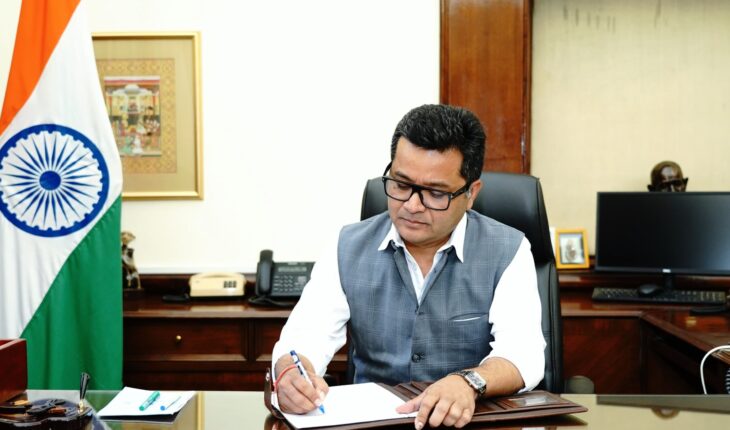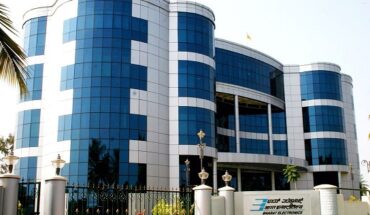Industry is estimated to be worth 175 billion dollars, including exports of 38–40 billion dollars: Rohit Kansal, Addl Secretary Ministry of Textiles
New Delhi : Chief Guest Pabitra Margherita, Minister of State, Ministry of Textiles, GoI, honoured the ASSOCHAM Global Textile Sustainability Summit as the distinguished chief guest. He underscored the importance of sustainability in the textile industry and outlined a vision for India to lead in sustainable textiles while inspiring global responsibility.
He advocated for collaboration and innovation to achieve a sustainable textile industry, stressing that growth should align with social responsibility and economic inclusivity. India’s textile sector presents unique opportunities to establish new standards for sustainability. It is essential that sustainability guides our progress, ensuring that the industry not only succeeds but also positively impacts the planet.
While addressing the summit, he further mentioned that the Ministry of Textiles has launched several initiatives aimed at embedding sustainability across the entire textile value chain such as the establishment of an environmental, social, and governance (ESG) Task Force, Promotion of Eco-friendly Practices, Promoting garment recycling and Development of biodegradable textile materials.
Additionally, policy interventions like the Production Linked Incentive (PLI) scheme, PM Mega Integrated Textile region and Apparel (PM MITRA) parks, National Technical Textile Mission (NTTM) and strategic trade agreements have paved the way for creating top-notch infrastructure, promoting investment, and generating employment opportunities within the textile sector.
He said, our ambition is not only to make India a hub for sustainable textiles but also to inspire a global movement towards a more responsible industry. The path to a sustainable textile industry is a shared journey that requires commitment, collaboration and innovation.
In his special speech, Rohit Kansal, Additional Secretary, Ministry of Textiles, Government of India, stated that the textile industry in our nation is poised for historic growth. This sector is estimated to be worth 175 billion dollars, including exports of 38–40 billion dollars. By 2030, he stated, we want to attain a $300 billion industry, with $100 billion coming from exports. Four big trends driving this sector are: uninterrupted growth of around CAGR of 8% for domestic textile sector. Digitization, automation and AI are the rest.
Meeting the needs of present without compromising the need of the future by Sustainability initiatives is necessary. Circular economic practice helps in making textile a hotspot for sustainability. Textile waste is the 3rd largest contributor to municipal wastage. Embracing sustainable practices is a fundamental shift in the industry’s approach that must endure. This commitment to sustainability is essential for securing a thriving future for the industry and the planet. Textile clusters should collaborate with each other as an ecosystem and MSMEs should learn from big corporations about their advanced technologies.
By working with vendors and suppliers along the whole value chain, utilizing green technologies, embracing renewable energy sources, and practicing carbon management, we as an industry are actively lowering our carbon footprint. In addition, we are enhancing production methods and using fuel-efficient ways in the textile industry.
M S Dadu, Chairman ASSOCHAM Textiles and Technical Textiles Council and Chairman, Colorjet Group gave his welcome address and said Viksit Bharat stands at the forefront, balancing growth and nature through a sustainable textile value chain. By embracing cutting-edge technologies like waterless dyeing, digital processing, and energy-efficient garmenting, we are setting a global standard for innovation that respects our planet.”
Milind Hardikar, Co – Chairman ASSOCHAM Textiles stressed on the textile industry, guided by the law of karma, stands at a critical crossroads. Embracing ESG as a global baseline, we are committed to due diligence—monitoring, mitigating, and reporting risks in this high-impact sector. With government policies promoting textile culture and the Ministry’s support for a circular economy, our path to net zero is strengthened by national guidelines that safeguard both the planet and our industry’s future.
In the realm of sustainable textiles, India leads with 93% of PET bottles being recycled, transforming them into premium recycled polyester garments stated by Ajay Sardana, Co – Chairman ASSOCHAM Textiles and Technical Textiles Council and President – Polyester, Reliance Industries Ltd. Through advanced technology, we are pioneering fabric-to-fiber recycling and establishing a robust reverse mechanism. With government incentive schemes, our sustainability initiatives can scale even greater heights, driving a greener future for the textile industry.






